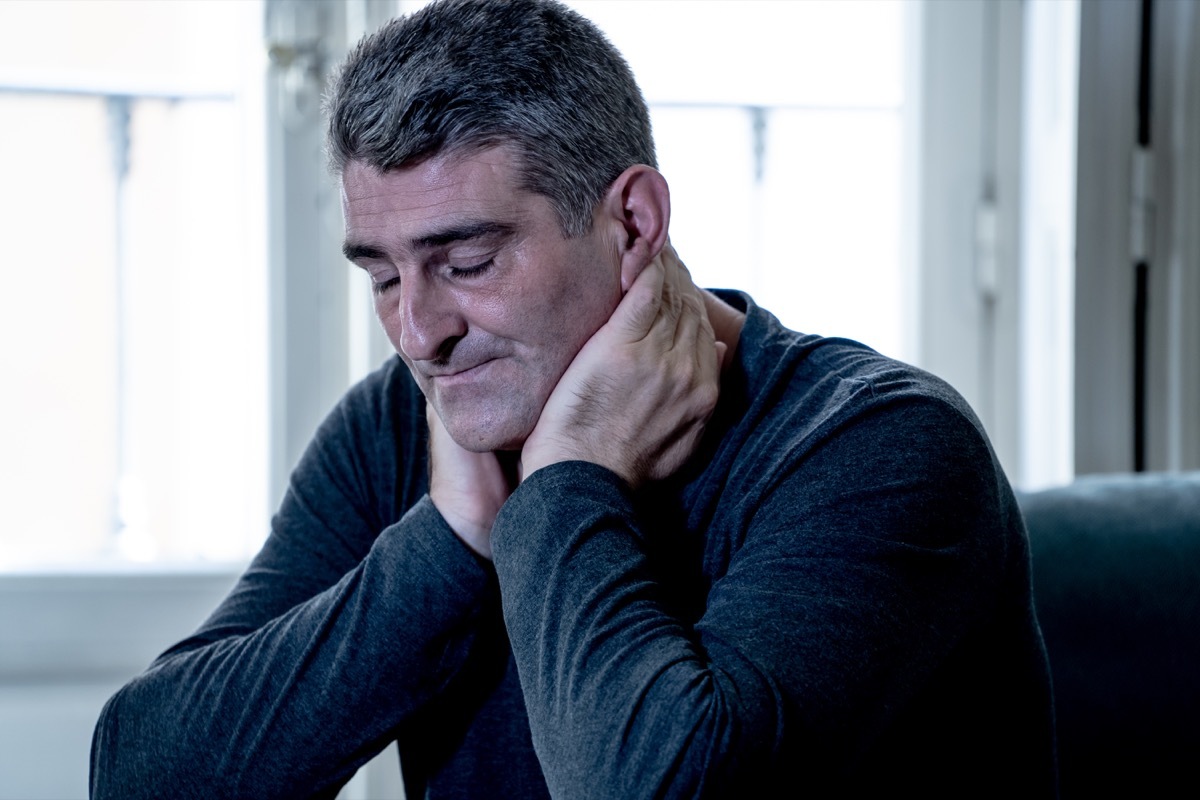5 Subtle Heart Attack Signs You're Likely to Miss
Being aware of these symptoms could save your life—or someone else's.

You've probably seen lots of heart attacks in movies and on television: Usually the victim clutches his chest, staggers backward, and falls down dramatically before being rushed to the hospital. But in real life, a heart attack is often far less theatrical. In fact, many people don't even know they're having a heart attack at all. In 2016, the American Heart Association's journal Circulation reported that nearly half of all heart attacks—45 percent—are what doctors call "silent," meaning they don't cause the classic symptoms, such as pain in the chest or left arm. And according to the Cleveland Clinic, the number is even higher—they say an estimated 50 to 80 percent of all heart attacks may be silent.
While in some cases, a silent heart attack may cause no symptoms at all, there is usually some kind of clue that something isn't right. It just might be so minor that the person having the heart attack doesn't realize what's actually going on. This can then delay seeking medical treatment, and in the worst-case scenario, those precious moments can result in a tragic outcome. Read on to find out which symptoms are a clue that you (or someone you love) might be suffering from a heart attack.
RELATED: If Your Legs Feel Like This, Get Your Heart Checked.
Kinakapos na paghinga.

We all get short of breath sometimes; climbing a steep flight of stairs can do it, and so can having a panic attack. But it's also one of the more subtle heart attack signs to watch for, especially in women, says Healthline. "Your breathing and your heart pumping blood effectively are very closely related," they write. If you have difficulty catching your breath for no apparent reason—you're not exerting yourself, for example—get to a doctor right away to have your heart checked out.
Indigestion or heartburn.

Just had a spicy meal or a junk food feast? Your upset stomach and heartburn are probably perfectly normal. However, indigestion can also be caused by reduced blood flow to the heart, according to the Mayo Clinic. "If you have persistent chest pain and you aren't sure it's heartburn, call 911 or emergency medical help," they recommend. If you show up at the nearest emergency room with indigestion, doctors will immediately run tests—because even experienced medical professionals can't always tell a heart attack from heartburn.
Pain in the jaw and/or throat.

Chest pain that radiates down your left arm is a heart attack symptom you've probably heard of before. But pain from a heart attack can show up in other places, too—and your jaw and throat are often in the line of fire. Healthline says this may feel "like a bad toothache," while Web MD says that throat and jaw pain by themselves don't usually signal a cardiac concern, "if you have pain or pressure in the center of your chest that spreads up into your throat or jaw, it could be a sign of a heart attack."
RELATED: For more up-to-date information, sign up for our daily newsletter.
Breaking out in a sweat.

A hot day or a session at the gym are both bound to make you perspire, and thanks to night sweats women going through menopause are used to waking up with soaked sheets. But if you find yourself breaking out in a sweat while also feeling discomfort in your chest, arm, neck, or jaw, get to the hospital. A 2005 study from the University of Illinois at Chicago found that perspiration, in combination with any kind of pain in those areas, could be a reliable predictor of a heart attack.ae0fcc31ae342fd3a1346ebb1f342fcb
A general feeling of unease.

Not feeling quite right but can't put your finger on exactly why? It's a good idea to get your heart checked out, even if you don't think you're exhibiting classic heart attack signs. Robert Lager, MD, told AARP that "a general state of discomfort" and "an overall feeling of unease" can indicate a silent heart attack. He urged people not to "sit around and wonder" about a sense that something is amiss. The heart is a muscle, and decreased blood flow due to a heart attack isn't good for it—so don't ignore any signs that something might be wrong. "The longer one waits to get evaluated, the more likely that there will be irreversible damage," he warned.
RELATED: Having This Many Drinks a Week Slashes Your Heart Attack Risk, New Study Finds.

Mga epekto ng pagkuha ng langis ng isda araw-araw, ayon sa mga eksperto

